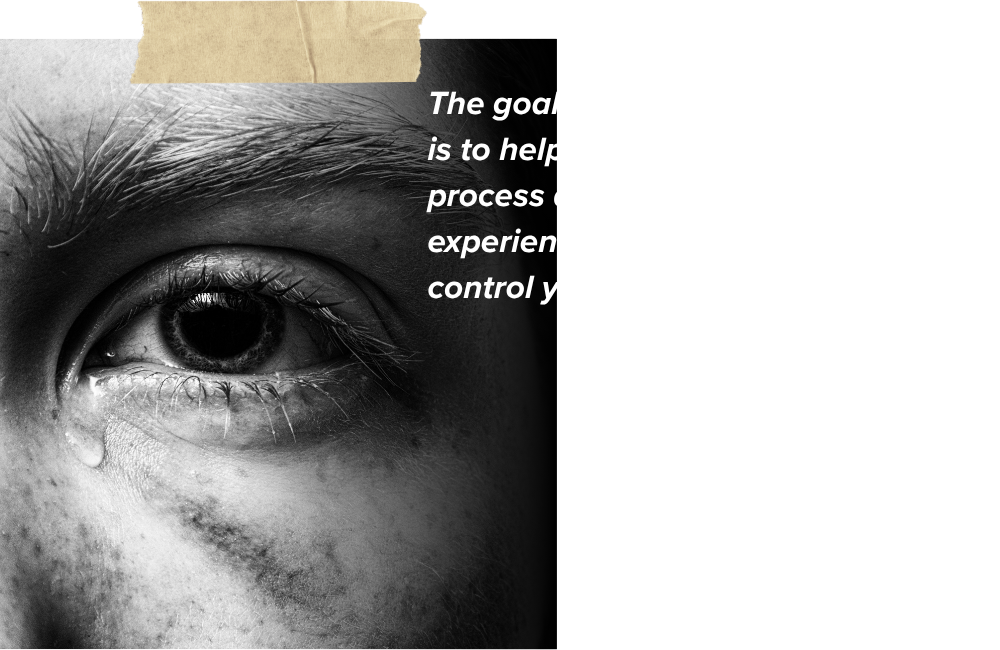Trauma

Specialized Trauma Therapy For Processing And Healing
As a licensed psychologist, I know that trauma can overwhelm a person’s ability to cope, making it difficult to regulate emotions. When trauma is unprocessed, it can leave the nervous system stuck in survival mode, leading to symptoms like flashbacks, intense emotional reactions, and feeling disconnected from reality.

Trauma disrupts how the brain stores memories....
A common coping strategy is to suppress traumatic experiences, but over time, the slightest trigger can bring everything back to the surface. This can lead to long-term symptoms such as:
- Flashbacks (visual, auditory, or emotional)
- Intense emotional or physical reactions
- Strained relationships and social withdrawal
- Dissociation or feeling disconnected

How Trauma-Focused Therapy Helps You Heal
My approach is grounded in advanced training, including The Trauma Research Foundation's Certificate in Traumatic Stress Studies. I offer evidence-based, trauma-informed therapies designed to restore nervous system regulation.
We will work together to find the right approach for you. Two highly effective methods include:

This is a structured approach that helps you manage distressing thoughts and feelings. We work on building coping skills, processing traumatic memories in a safe environment, and empowering you to reclaim your life.

These interventions focus on the mind-body connection, helping to release trapped stress from your nervous system and regulate physical and emotional responses.

Specialized Treatment for Complex PTSD (C-PTSD)
I also specialize in Complex PTSD, which often stems from chronic, relational trauma. Unlike single-event PTSD, C-PTSD can impact your sense of self, emotional stability, and ability to form secure relationships. My approach is tailored to address these deep-seated challenges and support every step of your healing process.
“The journey to move from surviving trauma to thriving in life requires much bravery and is well worth the risk.”
— Dr. Seguin

What is EMDR?
EMDR stands for Eye Movement Desensitization and Reprocessing. It is a structured therapy that helps the brain process traumatic memories. By using bilateral stimulation (like eye movements), we can reduce the vividness and emotion of distressing memories, helping you store them in a way that no longer feels like they are re-happening.
How do I know if I'm ready for trauma therapy?
Being curious or even nervous about therapy is a sign that you're considering a path toward healing. You don't have to be "ready" to start. The first step is a simple conversation. A free consultation can help us determine if this is the right time and approach for you.
You have the power to heal.
If you're ready to take the first step, I invite you to schedule a confidential consultation.
*PRICING | THERAPY WITH DR. SEGUIN, Licensed Psychologist
30-minute therapy session: $125 | 50-minute therapy session: $200 | Initial, Intake Session: $245
You have the right to receive a “good faith estimate” explaining how much your medical and mental health care will cost. For questions or more information about your right to a good faith estimate, visit www.cms.gov/nosurprises
